Elephant Hills, Thailand
Prioritizing humane treatment of the majestic animals while camping in their natural habitat at Khao Sok National Park

by Jennifer Miller
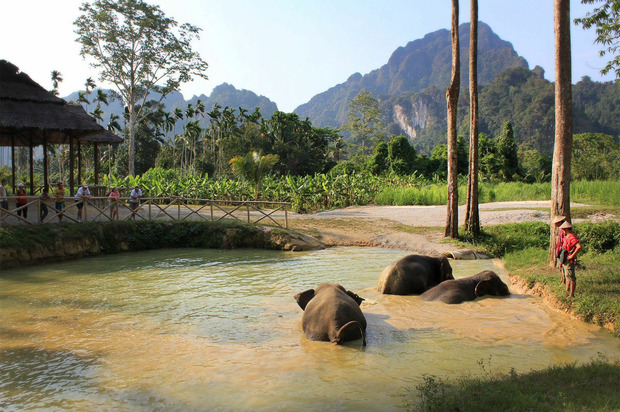
Every year, tourists flock to Thailand in search of beautiful beaches, delicious food and the chance to ride an elephant. The Asian elephant is the country’s national symbol, an animal much idealized and, for many years, greatly mistreated. In the early 20th century, there were as many as 300,000 wild elephants and 100,000 domesticated elephants in the country. Today there are fewer than 3,000 of each—and their numbers are declining. The Thai government outlawed loggers from using elephants in 1989, but tourism outfits that offer elephant trekking often treat the creatures harshly, overworking and underfeeding them.
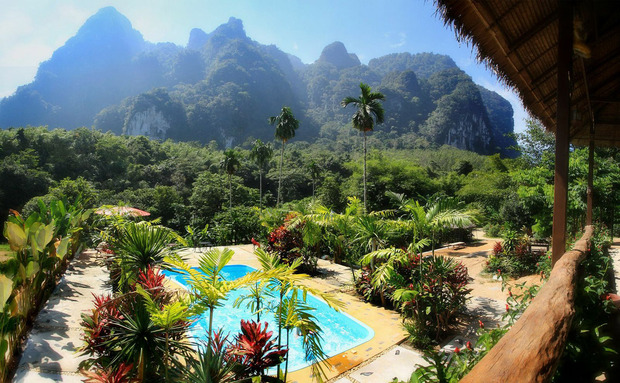
Elephant Hills, a luxury camping outfit in the stunning Khao Sok National Park in Southern Thailand, is an exception. They’ve owned elephants for over a decade and always prioritized humane treatment—recently stopping elephant trekking altogether. They did so not just for the animals’ health, but also to set an example and show that there are equally engaging ways to interact with the majestic creatures.
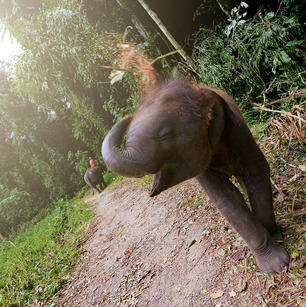
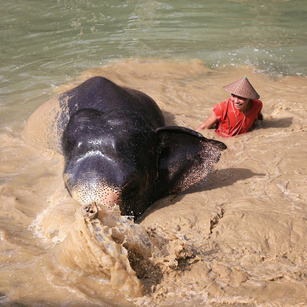
“More often than not, it is tempting to overwork and elephant with its rides, as more rides mean more money,” explains Chris Kaiser, outreach coordinator for Elephant Hills. “This can result in less free time, causing an upset elephant. Upset elephants are harder to control so manhouts (elephant caretakers) have to use more force.” In this case, “force” involves hitting the animal with a sharp hook. The 13 elephants that currently live at Elephant Hills came there because they were mistreated at previous tourist operations or because their owners lacked the financial resources to care for them. (Elephants can eat up to 200kg of food a day and drink 200 liters of water. It costs between $10k and $12k a year to care for one animal.)
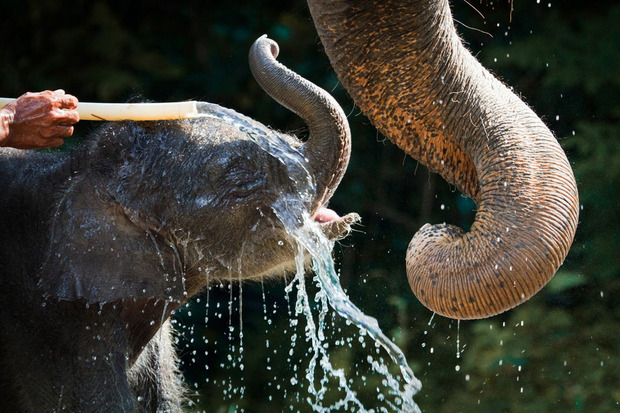
“Their ‘work’ at Elelphant Hills consists of playing around in their elephant pool as well as getting fed and washed by guests,” says Kaiser. “In the very high season, our elephants work three hours a day. The rest of the time they enjoy extensive walks in the rainforest.”
The jungles of Khao Sok are less traveled than Thailand’s central and northern national parks, though its Southwestern location (and Elephant Hills’ complimentary shuttle service) makes it an ideal stopover between the beaches of Phuket and Ko Samui. Elephant Hills itself also feels blissfully remote.
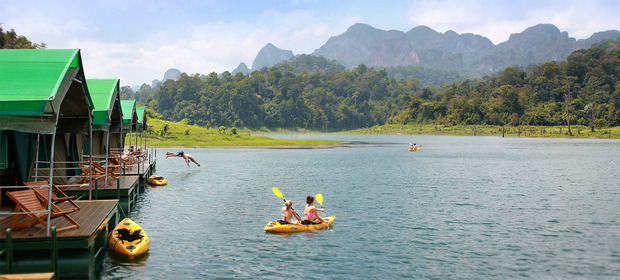
The outfit runs two sites—one in the jungle and one on floating platforms in the beautiful Cheow Larn Lake. Both locations are as stunning as the each other. One exciting drawcard to the lake though, is that visitors can jump directly from their porch into the water.
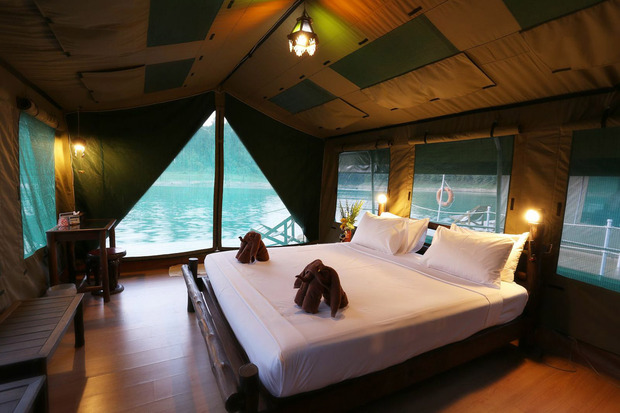
In the jungle and by the lake, all tents are permanent structures boasting hardwood floors, Queen-sized beds, indoor bathrooms and private hammocks. Everything is crisp and clean—truly epitomizing “glamping”—and chefs prepare delicious traditional Thai meals.
In addition to educational programs about elephant conservation and hands-on interaction with the animals, Elephant Hills offers on-foot jungle trekking, canoe trips and wild-life spotting excursions. The adventure activities are exciting, but the elephants make the trip unique. Guests spend an afternoon observing, washing and feeding the animals.
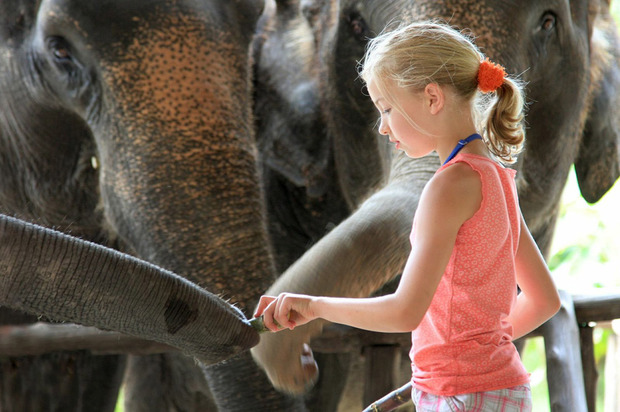
Each person is paired with an elephant and then given pineapples, sugar cane and bananas to hand-feed the animal (or have it stolen by an over-eager trunk). It’s an incredibly intimate and special experience—more so than riding. “Elephant trekking has not much to do with an elephant,” Kaiser rightly explains. “You sit on a shaky chair, enjoy the views, but how much do you experience with the animal? You don’t look it in the eye, touch its skin, or feel its snot being smeared across your hands and body in search of more delicious fruits and veggies.”
For all the exciting packages (from canoeing to mangrove exploring) available at Elephant Hills, visit their
website.
Images courtesy of Elephant Hills












